Online 'Unity4J' Vigil Reveals The Strength Of Support For Assange Among Journalists, Activists, Whistleblowers
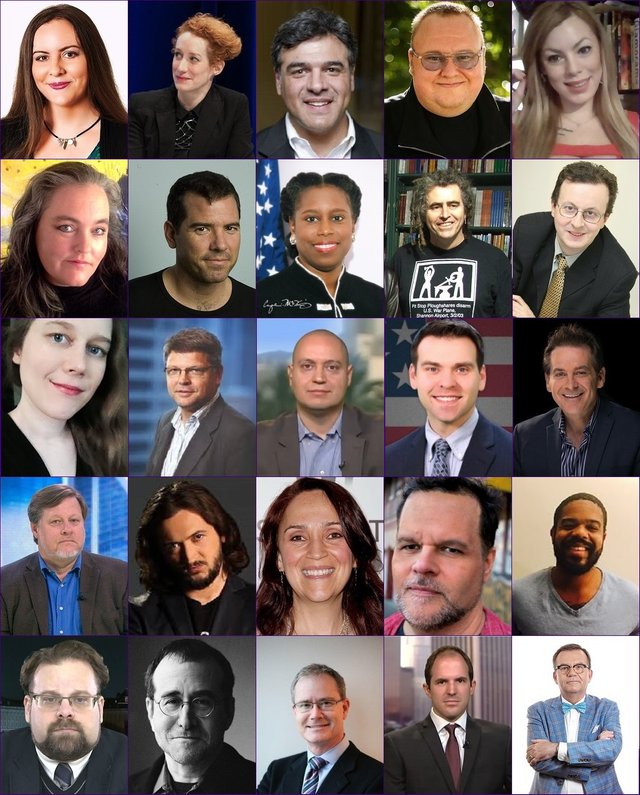
This article originally appeared on Disobedient Media.
The Unity4J online vigil, which took place over the weekend, saw the participation of renowned activists, journalists, whistleblowers and even filmmakers who came together - despite vastly different personal and political backgrounds - to support efforts to reconnect and free WikiLeaks Editor-In-Chief, Julian Assange. Assange has been trapped in conditions that amount to solitary confinement for over two months, a time period which more than quadruples the maximum described by the United Nations' Mandela rules.
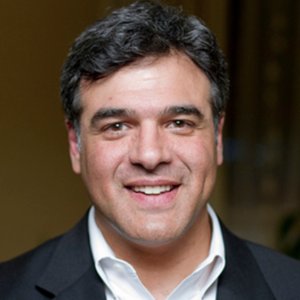
CIA Whistleblower John Kiriakou
This author was humbled to participate in the event, moderating for approximately 15 hours over the course of the vigil. Participants, in order of appearance, included: John Kiriakou, Niko House, HA Goodman, Greg Barns, Ross Cameron, Kim Dotcom, Peter Lavelle, Ciaron O'Reilly, Jack Poseibec, Suzie Dawson (who also served as a moderator and also led a team of dozens of people around the world who organized the event), Dmitry Babich, Graham Elwood, Cynthia Mckinney, Diani Barretto, Mark Crispin Miller, Kevin Zeese, Mark Sleboda, Lee Camp, Lee Stranahan, William Craddick, this writer (as a moderator), Cassandra Fairbanks (who also moderated), Caitlin Johnstone, and Vivian Kubrick.
As with Disobedient Media's coverage of the initial Reconnect Julian online vigil, it is impossible to encapsulate the sentiments of so many brilliant minds expressed over a near continuous, approximately 28 hour time span. Despite such limitations, this article will endeavor to at least touch on the thoughts of each guest, to provide readers some idea of the depth and breadth of contributions from the panelists who attended.
The first guest of the vigil was CIA Whistleblower John Kiriakou, who described the value of WikiLeaks to whistleblowers, especially in contrast with outlets including the New York Times, the Washington Post, the Intercept and others which had proven incapable of safeguarding their sources. This, he said, was in stark contrast with WikiLeaks, which he characterized as the only safe option for any whistleblower to seek out. In addition to his respect for WikiLeaks as a journalistic organization, Kiriakou expressed personal solidarity with Assange's ongoing experience of state-backed persecution, saying:
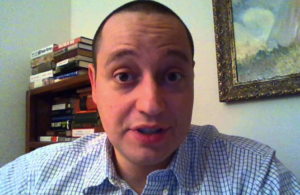
Journalist, author and columnist HA Goodman
"This is not an issue of left or right. This is an issue of human rights, and civil liberties. It's not specific to the United States: This is an international issue. I know what if feels like, to be standing alone. When it feels like the weight of the entire government is coming down on your head. That there's nowhere to turn, there's nowhere to go. I know exactly what the man is going through, and it's terrible. It's lonely, and so it's up to us to remind him, and to the world, the broader audience out there, that we're with him. That support him, we support the organization, and we support the issue, and that we won't back down."
"So many people here in the US have been cowed by these ridiculous comments by senior US government officials that WikiLeaks is akin to a hostile foreign intelligence service. The reason they've said that is because they are afraid of the work WikiLeaks has done, because it has been effective."
Kiriakou also emphasized the importance of letters he received, saying that it significantly improved his mental state to retain the thread of connection with the outside world that the letters represented. He told the vigil's audience that writing letters or postcards to Julian Assange at this time would be an essential and tangible way to help the WikiLeaks Editor-In-Chief.
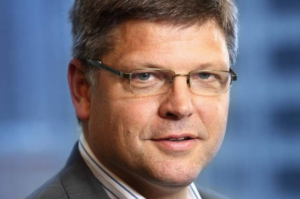
Greg Barns, Australian Lawyer of Julian Assange
Kiriakou directly compared WikiLeaks with other outlets like the Intercept, reiterating that while WikiLeaks has never burned or outed a source, the Intercept had burned multiple sources, including Reality Winner, adding that two journalists currently working with the Intercept were responsible for outing him and eventually his resulting prison sentence. When asked for his thoughts on developments since the previous Reconnect Julian vigil, Kiriakou described himself as "worried," because the ban on communications had continued for such an extended length of time. He added his concern regarding news of Ecuador's 'enhanced business ties' with the United States directly on the heels of his efforts to deliver a petition to the Ecuadorian ambassador to Washington D.C.
Kiriakou summed up his views on the future, saying: "I feel like we’re heading into an international crisis if we turn our backs on Julian Assange."
In addition to the work of moderators and participants, a tremendous amount of energy and time was contributed by the technical support and social media team associated with Unity4J. The event was also amplified by the verified accounts of Julian Assange (currently run by his legal team), and WikiLeaks.
In addition to the constellation of participants, moderators, technical support and social media voices amplifying the event, the interaction of Julian Assange and WikiLeaks supporters made a huge impact on the event, asking questions of guests which were compiled via Etherpad.
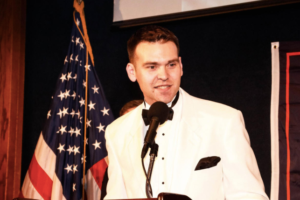
Journalist Jack Posobiec
HA Goodman told us: "I think that WikiLeaks is the last line of defense between an Orwellian Society and the truth... There's no entertainment value in WikiLeaks, and journalism has become synonymous with entertainment... There's such malice, such hate [in the IC], it's really unhealthy. It actually amplifies Julian's message. It makes Assange more of a hero... There's just too much momentum on the side of truth. ... I would not vote for Trump [in 2020] if Julian is arrested at his behest... Julian Assange is part of history. I think he is a remarkable human being."
Greg Barns, Julian Assange's legal representative in Australia, who is also an Australian barrister, author, and political commentator, spoke with us during the vigil. He explained his views on the UK's conduct in regards to Assange's case: "The UK's conduct has been appalling. For a government and a country which purports to uphold the rule of law, the conduct has been well short of that... This has become a completely political issue [and in other such cases] the solution at the end has not been legal. It has been political."
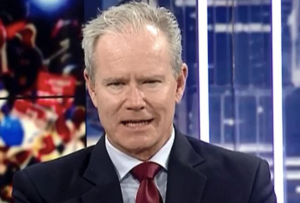
Ross Cameron, of Sky News Australia
Barns told us that politicians are extremely susceptible to political influence from their constituents, encouraging the audience to tweet their representatives, to send emails, petitions and letters to these same political figures, as it had proven an effective in creating change. Barns said: "Politicians react to volume. When they see ... huge numbers of letters, emails and tweets coming in [they know] it is a 'bbq stopper' conversation."
Sky News' Ross Cameron, host of the program Outsiders, also attended the vigil, explaining his path to respecting Julian Assange's 'thesis,' because he could not logically refute it. Ross also cited his 2010 article on the issue, Can't hide love for WikiLeaks, (although, as he points out, he was not responsible for the choice of the title of the piece) where he wrote that WikiLeaks and Julian Assange were forcing us to fundamentally rethink our assumptions.
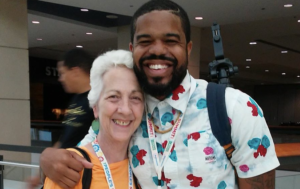
Image Courtesy of Niko House
Peter Lavelle, a seasoned journalist with RT, told the audience: "I don't usually do these podcasts but I had to speak up for what is right." He also described WikiLeaks' importance: "[WikiLeaks] is the public sphere of this day - it's where genuine public communication takes place now that the Deep State has fused with corporatism, and the mainstream media just plays along." He added, "This is what makes [legacy press] totalitarian: that there is 'THE TRUTH'. There is no 'the truth.' We work to get there. It's a process. It's not the end. That's what we should be doing, and that's what WikiLeaks is all about."
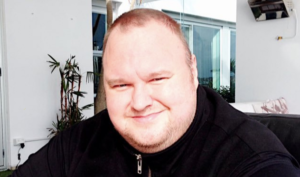
Kim Dotcom
Kim Dotcom expressed his bitter disappointment at the lack of meaningful response to Julian Assange's situation, adding deep concern for the future: "If WikiLeaks is silenced, then we will not be able to escape the path where our privacy is lost for good & our private information is used to control us... Julian Assange cannot leave the Ecuadorian Embassy, because he would not get justice. The justice system itself is rigged."
As noted by Assange's legal team via the Julian Assange Twitter account, activist, independent journalist and US Army veteran Niko House also expressed support for Julian Assange and WikiLeaks, saying: "We don't have a civil rights movement without freedom of the press." House explained the impact of WikiLeaks in revealing the corruption of the DNC - an issue in which House proved instrumental, in helping to instigate the DNC Fraud Lawsuit.
Human rights activist and long-time Julian Assange supporter Ciaron O'Reilly told us about his early anti-war activism, and the beginning of his support for Julian Assange, which developed prior to the WikiLeaks Editor In Chief seeking asylum in the Ecuadorian Embassy in London, in 2012. Ciaron iterated the anomalous treatment of the publisher from the outset, saying:
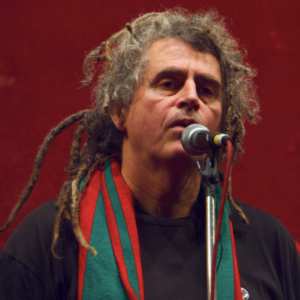
Ciaron O'Reilly, a Human rights activist and long-time friend and supporter of Julian Assange
"[Julian Assange's] next court appearance was in Woolwich [Crown Court] which is a court that was built for the Provisional IRA and later used with Islamic Jihadists. It's where terrorist cases are heard... "Labour Prime Minister Gillard ... offered to take his passport off him [7 Dec 2010]. When people complain about Ecuador, the Australians sold him out on the first day, and Ecuador's lasted nearly 6 years."
Like Kiriakou, O'Reilly emphasized the importance of letter writing to Assange at this time, speaking from the experience of being confined in various ways related to his activism. He also said:
"While I was back in Australia for a few months (visiting my mother) Julian entered the Ecuadorian Embassy. Initially [the Foreign Office] threatened to invade the embassy." O'Reilly summed up his sense of the current situation at the embassy, saying:"I think we are now entering a period again where it is a sprint, rather than a marathon. And I can see that clearly by the escalation in police presence. "
O'Reilly also said: "Julian got Gareth Pierce for a lawyer. Gareth is celebrated in Ireland ... she represented a lot of Irish people framed in England. [She's] an incredibly talented solicitor ... a great human being... "I helped found a Catholic Worker House in Haringey...We had lots of great public meetings there around Chelsea Manning & Julian Assange."
"WikiLeaks approached me about getting security for Julian - to get him in and out of court. The media want a 'freak-out' shot. Our job was to get him through the melee of photographers. So we met through that (again)... We'd also sing that Dylan song "I shall be released whenever he came into court, which was a very nice way of expressing solidarity, rather than screaming and chanting."
Later in the stream, conservative journalist Jack Poseibec told fellow Unity4J host Cassandra Fairbanks that what is happening to Julian Assange: "Sets precedent from a human rights perspective, and shows all of us what could happen, if we were to end up in a similar situation."
The second half of the vigil is available below:
Journalist Dmitry Babich, told Suzie Dawson: "As a journalist, I felt a pleasant shock when Julian Assange appeared on the world media stage. I simply could not imagine that just one person with a small group, not on salary, and a small amount of money had changed the tide of history and world news... I simply could not imagine that this was possible. Julian managed to do it with just a handful of supporters that gradually grew into something bigger... and that's why, as a journalist, I admire him from a professional point of view... Julian is certainly one of the world's greatest journalists today."
Since the vigil, Ciaron has resumed a daily eight-hour vigil on the ground in front of the Ecuadorian embassy in London, where the public has gathered with him to show support and solidarity with the isolated journalist.
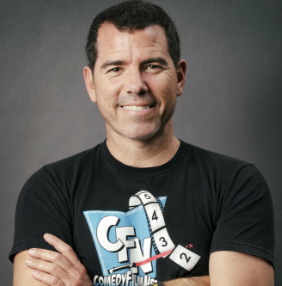
Comedian Graham Elwood
Progressive comedian Graham Elwood also remarked on the oscillation of press coverage on Julian Assange, with the left idolizing the publisher in the early days of the organization, only to abandon them when convenient. Elwood credited Julian Assange with his own personal realization of the true lack of substantive difference between the two political parties, adding that ultimately there is one "corporate state" that we face off against.
Elwood said: "The media used to be the watch dogs against the establishment. Now, the news is bought and paid for... They have designed a system to encourage apathy. The [establishment]... keeps us constantly distracted, because when you start paying attention you realize that the two-party system is like professional wrestling, and Sean Hannity is the conservative wrestling character and Rachel Maddow is the liberal wrestling character and they both serve the same corporate benefactors... It's inspirational to me, what Julian has put himself through, all for the truth. He has sacrificed his family life, his personal life, all for the truth. If he's willing to do that, it's a big ask. Since he's made that choice, the least we can do is support him."
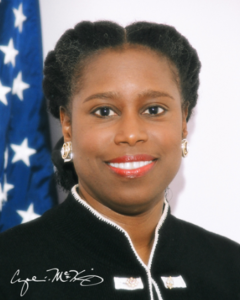
Former Congresswoman, Green Party Presidential Candidate Cynthia McKinney
Suzie Dawson also spoke with Diani Barreto, who described the development of a community of whistleblowers of all backgrounds in Berlin. She explained that though she had no previous experience in the area of hacking, she became a go-to figure in the organically established Berlin community that flourished in the years leading up to the Snowden revelations. She described figures like William Binney as "heretics of the security state." She also echoed the description of John Kiriakou on the experience of truth-tellers, saying that whistleblowers became a "universe of one," which was extremely harrowing and required strong support.
Former Congresswoman and Green Party Presidential candidate Cynthia McKinney told Suzie Dawson that, we can come from genuinely different backgrounds while coming together in support for Julian Assange, with Dawson responding that it is the State that wishes to impose conformity. She said that we do not have to force each other to conform in order to express unity. McKinney called the divide and rule tactic a method to divide the population, which was also why the Unity4J vigil was important: that it included people from all backgrounds. In addition to comparisons drawn by Dawson between Martin Luther King and Nelson Mandela, Cynthia McKinney called Assange a "political prisoner that must be freed."
Mark Crispin Miller, author and professor of media studies at New York University, compared what he called the "grotesque persecution" of Julian Assange with the homage shown to the Washington Post in the recent Hollywood film, The Post. He described the jealousy of sell-out media outlets and pundits who "naturally dest" Julian Assange for his work, which was what what the press should have been doing all along. Miller added that in addition to voicing the perspective of the state, legacy media actually does work with assets of intelligence agencies:
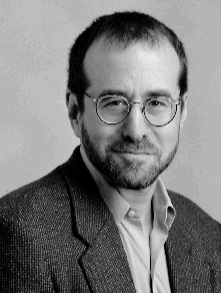
Mark Crispin Miller
"We have known since 1977, when Carl Bernstein wrote in Rolling Stone that 400 journalists were working as assets of the CIA... however, Bernstein only obliquely references the fact that the journalists were publishing material provided to them by the CIA. So despite it being a bit of a limited hangout, we can say that we have known since 1977 that the CIA recruits journalists to do their work. This was something that the Church committee and the Pike committee had discussed to some extent in their respective reports... that makes it abundantly clear that we do not have a free press, and that the press is an extension of the government."
He added that propaganda programs in the West had been more effective than propaganda practices in "closed societies" like China or Cuba, due to the fact that Western propaganda was forced to be more "inventive, more ingenious," in its efforts to suppress dissidents. He explained:
"What we see in the United States now... is a very comprehensive, sophisticated, various and inexplicit censorship. The silencing of Julian Assange is just one piece of it. I think the last thing Julian tweeted had to do with Catalonia... but that's not the reason why they pulled the plug on him... Generally, it was because he has been a monkey wrench in the works for years, he's been providing material that the government wants hidden, but I think more specifically, I think they decided it was time to pull the plug on him was because he was raising serious questions about the Skripal and Russiagate narratives. This is what we have to understand: Inasmuch as propaganda does not want contradiction... we have to understand what the propaganda narrative has been in the last couple of years that would lead the state to take such a radical step as to silence Julian Assange."
Miller then described the narratives regarding Russiagate, Russian hacking, Syria and the alleged gassing by Assad of Syran civilians while Assad is backed by Russia, and finally the dubious narrative regarding the Skripal poisonings. Miller related the silencing of Assange with smears agains journalists including Vanessa Beeley, Lee Camp and others, who have been attacked, discredited and smeared by legacy press outlets in addition to censorship, all in order to protect the Western establishment's propaganda narratives.
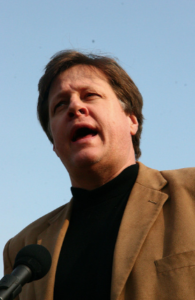
Kevin Zeese
Kevin Zeese, an American lawyer who currently serves as a co-Director of popular-resistance.org, was a member of the steering committee of the Chelsea Manning support network since the day she was arrested, and now serves on the Board of the Courage Foundation. He said: "I've been an activist since law school... During the 1980's, when people were saying 'just say no,' I was fighting to [legalize] marijuana, against mass incarceration and the war on drugs, and I still work on that issue as well as others, including racial injustice. I also work on environmental justice, the degradation of our environement, land, water, air - and working on ending imperialism."
Zeese expressed support for Julian Assange and WikiLeaks during the stream, saying: "So much of activist work is about revealing the truth. Breaking through propaganda and false information and letting people know what is really going on. Because misleading people, is how the people in power stay in power, and that's why I think Julian Assange is so important... he has basically democratized the media with WikiLeaks... he has released some of the most important documents, really the most important news, of the last decade. So much that we know now we would not have known. So much of what we suspected was true was verified... it is more important than ever for activists to participate in the battle for the narrative... I think the persecution - it's a prosecution but its also a persecution - is really the John Peter Zenger case of the 21st century. The Zenger case is what basically established the First Amendment... we are battling for how the media will report in the internet age. What does freedom of speech mean in the 21st Century? What does freedom of the press mean in the 21st Century?... People forget about the impact of that truth, and the impact WikiLeaks has already had."
Zeese also discussed the critical role played by Julian Assange, Sarah Harrison and WikiLeaks in saving Edward Snowden, saying that Sarah Harrison had not received accurate credit for her role in that saga. Zeese addressed the farcical nature of the Swedish investigation of Assange, characterizing it as a flimsy cover for persecution of Assange as a journalist. He said: "All of the media needs to be clamoring for his freedom and to an end of the persecution of Julian Assange."
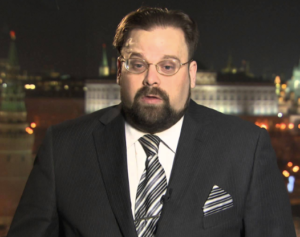
International Relations expert Mark Sleboda
This writer also spoke with international relations expert and US military veteran Mark Sleboda during the vigil. As a panelist, Sleboda discussed the geopolitical impact of WikiLeaks and Julian Assange, saying that Assange's creation of WikiLeaks had fundamentally impacted the military, financial, entertainment, media, security complex and other facets of power which he characterized as US hegemony, sometimes referred to as the 'US empire.' Sleboda detailed the massive scale of the United States military and its cultural influence during what he called the American "unipolar moment" after the dissolution of the Soviet Union.
Sleboda said: "Julian Assange has recognizes all this. He has seen how unlimited power amplifies itself, and corrupts itself... A lot of WikiLeaks' work is therefore focused on the United States, and Western states, client states [of the US] and so on. WikiLeaks has published reports and leaks from other countries, like Russia and China. However, whether you call it a critique or admiration, as I do, they recognize this imbalance of power around the world [in favor of the United States]."
"The Manning leaks exposed war crimes, and we knew about it - but people who spoke about it were dismissed as conspiracy theorists. What WikiLeaks and Manning provided the world was verification, not only of specific instances, but of patterns of behavior. The State Department cables, even when they reveal normal daily business operations, reveal the arrogance of empire, and behind this is the supremacist ideology of American exceptionalism, the idea that the US is morally, politically superior to all other states and cultures on earth, and where it is not bound by law, it acts in the interest of the world... This is why I think that Julian Assange has focused a lot of the work of WikiLeaks specifically on the United States.

Comedian Lee Camp
This author was then humbled to speak with comedian Lee Camp of Redacted Tonight, who also participated as a Unity4J panelist. Camp had also participated in the initial Reconnect Julian online vigil in March. Camp discussed the unique role of comedy, and the way in which comedians have stepped into the void created by the death of journalism in terms of providing real critique of the establishment.
Camp said: "Many of us as comedians are used to speaking our mind and not being instructed on how to move our career forward on a career track, where many journalists have to think about ho to move forward in this... corporate entity, so their education has been, to some degree, how to fit into this corporate mindset. Very few have done what, for example Chris Hedges did, in opposing the Iraq War and being kicked out of the New York Times and saying - you know what? I don't care, I'm going to keep doing what I know is right. Maybe it has to do with the fact that comedians very rarely have that set career path... it's possible that we haven't had the indoctrination that journalists have."
Camp reiterated the influence of WikiLeaks publications on the Arab Spring, as well as movements against the TPP, adding that WikiLeaks was pivotal in his own growth as an activist as well as for society as a whole, concluding: "All of this is why WikiLeaks and Julian Assange are so dangerous to a system that is completely unsustainable and kills thousands of people around the world." Lee held up his own personal copy of the WikiLeaks files, a particularly poignant gesture given Julian Assange's authorship of the text and his current inability to speak out.
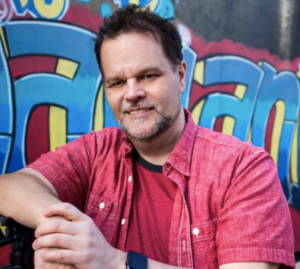
Journalist Lee Stranahan also joined in with the vigil, describing the attacks against Julian Assange as an attempt by the establishment to make an example out of the "greatest journalist of our age." Stranahan characterized the Clinton and Bush dynasties as 'our own little American spin on oligarchy," while emphasizing the need for the public to speak up on Julian Assange's behalf. He pointed out the unique loss of Assange's voice on a wide variety of critical events that have taken place since he was silenced in late March, including the most recent US missile strikes on Syria, the evolving saga around the Skripal poisonings, and much more.
Lee Stranahan went on to say of Assange: "He is the one person, who when the documents got to him, he released them... he let them speak for themselves. You can't buy that, the ineffable bravery. Just bravery."
He added that: "So many people have been cowed into silence - that's why it is so important that you keep doing these [vigils.] It's important not to let people forget, and so much happens that can distract people."
We then had the pleasure of a surprise guest, esteemed comedian Jimmy Dore. He said: "Chomsky taught us that the media makes us believe we are the only ones who think the way we do. WikiLeaks and Julian Assange let us know we aren't alone." He added: "People get so upset about Donald Trump 'threatening the media' - no, he's just talking outwardly the way the government has been working internally, since I don't even remember. Obama prosecuted more journalists than all the other [prior] Presidents combined! Everyone's acting we got Donald Trump and things are bad. No, we got Donald Trump because things are bad. And WikiLeaks reveals that kind of shit, and that's why they want to lock [Assange] up."
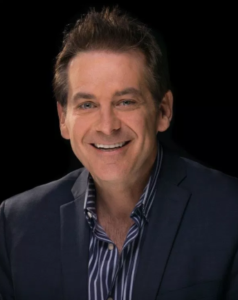
Comedian Jimmy Dore
Dore characterized the shocking developments in Ecuador's treatment of Assange over the last few months as clearly due to pressure from the United States. Dore said: "We don't protect the press in the United States, we protect the corporate mouthpieces to the establishment... Julian Assange said in 2010, that the new state censorship is being carried out by private corporations, and that is exactly what's happening. Youtube is owned by Google, and correct me if I'm wrong, but wasn't Google started by the CIA? Now, they are throttling independent news, and they will never tell you the truth about war."
Dore added: "You can tell what is the biggest lie, because they all say Trump is a mad man with his finger on the nukes, then vote to give him $80 Billion more in bombs, then wag their finger at him and say, you better bomb Syria, and then when he does, say he's do it bad enough! And it's like - I though he was a maniac?! It reveals they are bullshitters, and Trump is going right along with him, selling [arms] to Saudi Arabia... [He's acting] on behalf of Israel, not Russia!"
He summed up his support for WikiLeaks: "To me, WikiLeaks is Daniel Ellsberg, and I am anti-war. You know, the only person prosecuted for the US torture program is John Kiriakou, the whistleblower who exposed it... So to me, Julian Assange is the antidote to that stuff because he exposes the truth. Again, the problem with Julian Assange is that he's not funny. Because as - I think it was Oscar Wilde, who said: When you tell people the truth, make them laugh or they'll kill you. So now that's why everyone wants to kill him, because he's telling the truth without jokes surrounding it. That's why I try to pep it up with some punchlines, because I am trying to save my neck."
When asked about WikiLeaks' influence on his work, Dore cited having done entire segments of commentary centering on the material allegedly leaked by Chelsea Manning. He said: "It blew my mind. I knew some of this stuff, but I didn't know about all the war crimes they committed." Dore also described the hypocrisy displayed at the Oslo Freedom Forum, where he was verbally assaulted after raising his hand and pointing out the issues of mass incarceration and police violence in the US in addition to the fact that a war criminal is now the head of our CIA. He recounted the question he asked during the forum: "When you mention the free world, do you still consider the United States to be part of the free world? I started asking the question but I didn't finish it, but they cut me off and immediately called me a Putin puppet. So that's the new grift: to pretend you are a human rights organization and yet... [parrot] neoconservative agendas. And we need Julian Assange to point things like this out! They want people to think Trump is the problem. The system is the problem."
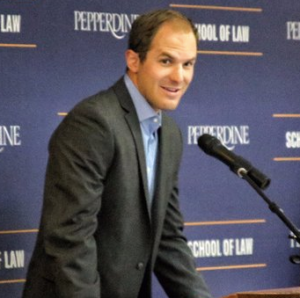
Disobedient Media Co-Founder William Craddick
Disobedient Media's William Craddick joined myself and Cassandra Fairbanks, discussing not only the horrendous conditions in which Julian Assange is currently trapped, but also the way in which WikiLeaks inspired us to pursue independent journalism. Fairbanks said that without WikiLeaks, she would never have begun writing journalistically.
Craddick and this writer also cited WikiLeaks directly in the inspiration to found Disobedient Media. William Craddick also spoke about the current geopolitical climate in South America in terms of Ecuador in particular. He felt that one of the only ways the public might be able to tangibly help Assange might be through civil disobedience, a view echoed by a number of prior panelists.
Craddick said: "WikiLeaks allows us to have an honest political dialogue, and in revealing the truth, it allows us to see the world much closer to the way it really is, rather than how others would like us to see it." He added: "I think people who supported Trump need to remember that just because Trump got into office, does not mean that the fight is over, and it doesn't even mean we're through the first or second round, we have a lot of work ahead of us... I think people have been lulled by this idea that things are already fixed or are automatically going to improve."
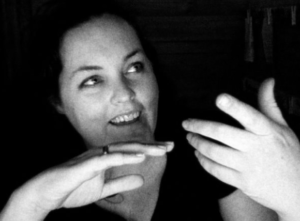
Independent Journalist and Poet, Caitlin Johnstone
Cassandra added her thoughts on the unity embodied by the vigil, despite political differences between panelists: "I love it when you guys get everyone together, and we all rally together for a common cause... I am always willing to reach across the isle on issues like war, and WikiLeaks. We have so much more power that way, and I love seeing other people do the same."
Beloved independent journalist Caitlin Johnstone also participated in the long-running online vigil, saying that: "Julian Assange is really good at showing where power sits, and how it works. He shines a ligt on propoganda. He is a weapon, that opens up cracks in the propoganda machine. If you control the narrative, you control the world, which is why they hate Julian Assange, because he is constantly throwing shade on their narratives - and that's why he's so important."
Caitlin added: "[Julian Assange] will be thought of as a Nelson Mandela figure, someday. It will say something about us as humans, when we see where we stood on this, and how gullible we are... how easily led we can be by the nose... he is proving his thesis just by existing. Julian Assange would not exist if our democracy was as free and transparent as we are led to believe. He wouldn't need to exist. His publications would be redundant, there would be nothing to leak because everything would be transparent. The way that he has been persecuted, shows up more and more, how deeply evil these fuckers are, and how much they will protect their power structures, and how much they see the narrative as the power structure they need to protect."
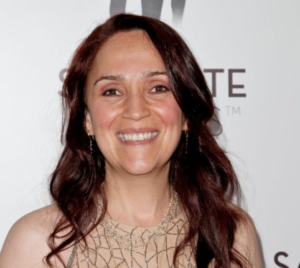
Film-maker and composer, Vivian Kubrick
Our final panelist in the Unity4J vigil was none other than film maker and composer Vivian Kubrick, daughter of late Director Stanley Kubrick. We were humbled to discuss Vivian's support for Julian Assange, and her estimation that more figures from Hollywood have not yet stepped forward to defend Assange due to the universal saturation of social engineering, as well as the instinct to protect their own career.
Vivian Kubrick told the viewers of the vigil: "Don't let the powers that be make you believe that the situation is hopeless and that you have no power. You can make a positive difference.... Julian Assange is being '21st Century tortured.' They want to break him." She described Assange's suffering as Christ-like, specifically due to the fact that he has taken it on voluntarily on behalf of the entire public, and their right to know the truth.
Finally, Suzie Dawson and this writer closed the vigil with a discussion the efforts which will continue to bring together journalists, activists and whistleblowers to fight for Julian Assange to be reconnected to the outside world and ultimately freed.
Additionally, this writer spoke to the audience directly, emphatically pointing out to Unity4J viewers that it is ultimately up to the public to ensure that Julian Assange's isolation ends: the public must act, in any way that they are capable of, whether through donations, letter-writing campaign, signing petitions, handing out leaflets, creating pro-WikiLeaks street-art, or any part of a constellation of actions that will raise awareness and express solidarity with the isolated WikiLeaks co-founder.
Disobedient Media will report on such efforts made by members of the public in the near future, and also will continue to report on events tied to Julian Assange and WikiLeaks as they develop.
the agenda & propaganda of the mainstream media is so blatant & obvious, yet so many choose to believe in them :-/
Unfortunately, very true.
Hello! Real quick wanted to alert you that we noticed this person is stealing your content. We have now banned and muted him from the Informationwar effort.
https://steemit.com/@manokna
Looks like he has taken a few of your articles word for word.
Were you in our discord yet? Lots of us hang out there and talk about informationwar type stuff if you ever wanted to drop by
https://discord.gg/zXGd7D
:)
Go this is excellent, thanks for sharing!
To listen to the audio version of this article click on the play image.

Brought to you by @tts. If you find it useful please consider upvoting this reply.
Nice work mam
Go here https://steemit.com/@a-a-a to get your post resteemed to over 72,000 followers.
Curated for #informationwar (by @openparadigm)
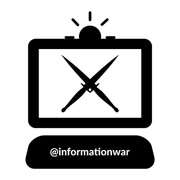
Relevance: Unity4J
Our Purpose
I went looking for one thing that Wikileaks has exposed that had not already been exposed and couldn't find not even one. So I question if perhaps this is not the old controlled opposition we have been seeing for hundreds of years?